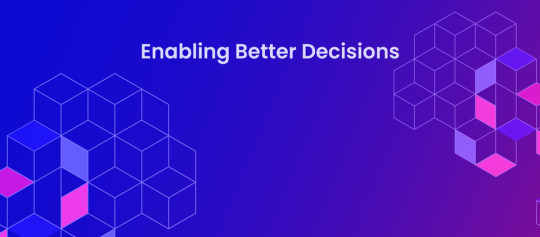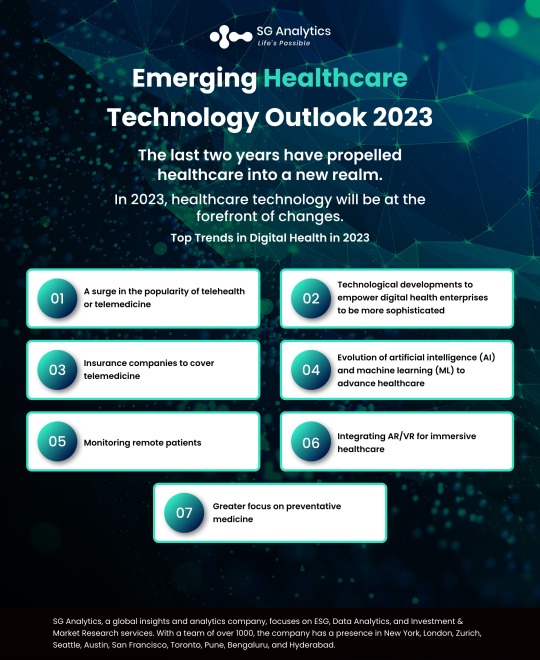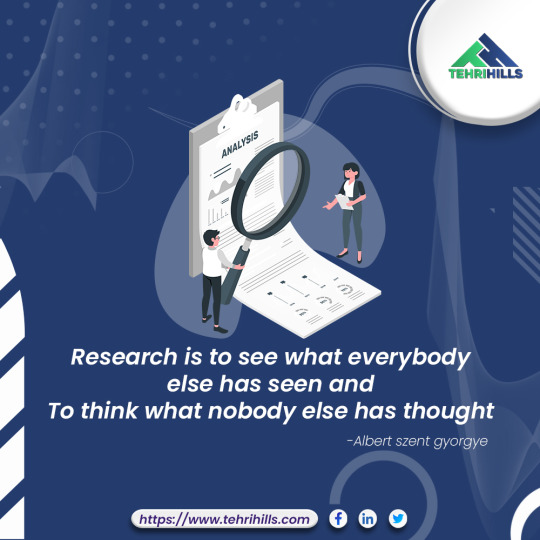#market research consulting
Explore tagged Tumblr posts
Text
How Do Market Research and Competitive Analysis? – Types with Examples
Products that do not satisfy customer needs and wants fail to perform well in market dynamics, affecting your sales revenue. However, market research and analytics help you estimate consumer behavior. Corporate leaders also create competitive strategies using customer insights discovered by market research consulting partners. So, this post will explain how to do market research and competitive analysis.
What is Market Research?
Market research involves interviews, surveys, social listening, and media coverage analytics to acquire valuable customer insights. Therefore, businesses employ market research consulting firms to improve their understanding of consumer preferences.
The obtained insights allow companies to revise their pricing strategies and marketing efforts to attract new customers and retain existing ones. Besides, such data-driven pricing, marketing, and innovation strategies are less vulnerable to human errors, a significant drawback of empirical business development methods.
Enterprises use market research to minimize product launch risks. A marketing analytics company also delivers transparent and flexible reports to research what promotional strategies drive the most engagement from target customer profiles.
What is Competitive Analytics?
Competitive analytics leverages statistical modeling and automation technologies to identify methods to help you overcome your competition and increase your market share. For example, marketing research and analytics firms can guide you in optimizing your internal operations to compete more aggressively.
Consider how inefficient allocation of resources affects all enterprises. If two companies target the same customer segment, the more efficient company will succeed. After all, corporate competitiveness improves when a business reduces the irresponsible use of company resources. Later, it can transfer the related financial benefits to the customers, i.e., rationalizing prices.
Simultaneously, you want to know how your competitors plan to increase their market position. However, they will not share such confidential intelligence on public platforms.
Therefore, market research consulting teams will develop machine learning (ML) models to process your competitors’ press releases. ML facilitates modern predictive analytics and helps companies forecast how competitors plan to grow their business.
How to Conduct Market Research and Competitive Analysis?
Goal determination is the first step in conducting market research or competitive analysis. If a business invests in market research consulting without clearly communicating its envisioned objectives, it will experience disappointment due to directionless competitive analysis or macroeconomic surveys.
Later, study the available technologies and how implementing them will affect the company financially. For example, standard marketing analytics tools benefit a regional company. Similarly, a global business firm will require scalable, automated analytics software to generate high-quality reports.
Finally, you want to specify a timeframe. Otherwise, monitoring the progress of your market research efforts will become daunting. Moreover, the risk of scheduling conflicts increases without time-bound activities. Financial planning also depends on the time factor for interest estimations associated with borrowed capital resources.
Organizations have distinct business objectives, risk dynamics, and data processing requirements. Therefore, study the following market research and competitive analysis techniques.
Part 1 – Types of Market Research Services
1| Primary Research
It is primary market research when a marketing analytics company interviews customers, suppliers, and employees. After all, the collected customer insights originate at the source, enhancing the quality of your competitive analytics operations in market research. You also get ownership rights to the resulting databases.
Such original research helps you create thought leadership content, establish authority, and acquire unique strategic foresight. Sometimes, primary research integrates into whitepapers, case studies, and investment relations (IR) disclosures, increasing the trust in the brand among stakeholders.
2| Secondary Research
Finding customer insights through social listening and media coverage analytics for secondary research primarily concentrates on publicly available intelligence gathered by somebody else. Also, the scope of market research consulting teams revolves around magazines, social media platforms, consumer discussion forums, and global news publications.
Secondary market research relies on already available intelligence resources. Therefore, most data in a secondary research project will have third-party owners. The hired marketing analytics company might use the editorial reproduction freedoms often governed by fair use or educational intent principles to help you in your marketing efforts.
Still, organizations must practice proper caution since different secondary data sources can be prone to manipulative content and misinterpreted perspectives on business-critical ideas. Assessing the authoritative qualities and historical reputation of each data source can become easier with the help of a market research consulting firm.
3| Manual Research
Small businesses and young social media accounts can evaluate their growth, revenue, and competitiveness using simple analytics for customer insights. Remember, they generate fewer data points, eliminating any necessity for extensive database processing.
Nevertheless, manual market research suffers from a more prominent risk of exposure to human errors. For example, psychological issues and physical limits often prevent your team members from developing holistic data models efficiently. So, manual research efforts are no longer relevant. Besides, enterprises have adopted advanced marketing analytics.
4| Automated Research
Machine learning allows for self-learning software applications, i.e., they can learn multiple tasks that usually require human intervention. Likewise, artificial intelligence (AI) enables automated marketing research and analytics through abilities similar to idea synthesis.
Market research consulting will offer data gathering, validation, and cleaning automation. You will have access to more extensive data throughout the day and night.
Corporations save a lot of time and human effort when ML models extract customer insights via analytics. Additionally, such technologies eliminate ambiguity in competitive analysis and market research by facilitating accelerated data validation.
5| Qualitative Research
Customers might complain about a product feature in their social media posts or consumer discussion forums. Some users will also give you meaningful feedback using highly descriptive texts. Additionally, you want to analyze product ratings and reviews if you operate an e-commerce business division.
However, software applications need more help understanding meaning and emotions when processing qualitative consumer responses. Qualitative marketing research implements natural language processing (NLP) algorithms for sentiment analytics. Therefore, categorizing unstructured data becomes seamless.
6| Quantitative Research
The customer rating system varies from website to website. Still, it contains numerical data manageable using straightforward mathematical programs. So, quantitative market research gathers more structured data.
Analyzing properly structured data does not require extensive computing resources. Businesses utilize quantitative research in financial modeling and total quality management (TQM) instead of sentiment analytics. They prioritize the quantitative methods for these two operations because the core reporting systems are well-structured and standardized.
Moreover, it does not make any business sense to use a lot of computing power when the marginal gains in performance contribute little to ultimate goals, like revenue enhancement and market share increment. Therefore, professional consulting firms specializing in market research technologies assist enterprises in deciding when to use quantitative or qualitative analytics for customer insights.
Part 2 – Types of Competitive Analytics
1| Internal Competitive Research and Analysis
Every established marketing analytics company treats an organization’s competitiveness using a systems approach. So, internal competitive analytics investigates how an enterprise manages its supply chain, professional networks, business units, and investor relations.
For example, a business might suffer above-average employee attrition during a specific financial year. It can ask a competitive analytics company to inspect how such problematic events in retaining talent affect its performance.
The consulting analysts will then reveal the impact on the company through statistical modeling. Later, the business can revise its talent acquisition processes, employment contracts, and workplace environment to counter the adverse effect of employee attention using the consultants’ insights.
2| External Competitive Analytics
A company’s performance relies on factors outside its direct control, and consulting firms research these external market forces. It is external competitive analytics with a broad scope of data gathering, validation, modeling, and reporting global customer insights.
Consider how currency fluctuations influence the financial planning done by import-export businesses. Likewise, natural disasters introduce systemic issues across transportation, communication, and healthcare infrastructure.
How can an organization become more resilient against the losses resulting from earthquakes, avalanches, tsunamis, landslides, or other catastrophes caused by malicious actors? Competitive analysis and market research can give you the data necessary to evaluate such business queries.
Most market research consulting teams consider the socioeconomic and political stability indicators for such inquiries. After all, enterprises of all scales must be attentive to external competitive risks.
3| Competitor Analytics
Competitor analysis has a narrower scope since it concentrates all the marketing research and analytics activities on your top business rivals. It is a subset of a more holistic competitive analysis. Therefore, it takes less time, consumes a few computing resources, and delivers reports fast.
You can utilize computer analytics for peer benchmarking in a target industry. This activity allows enterprises to compare their performance with how their business rivals perform in the same industry. However, computer analytics becomes more complex if a company serves multiple customer segments, leading to the application of advanced tools to acquire insights.
5| Descriptive and Diagnostic Analysis for Competitive Intelligence
Descriptive analytics explains a company’s past performance so that the leadership, management, marketing, and sales teams can learn how their strategies have contributed to business objectives.
Diagnostic analytics adds value to historical performance records by identifying methods to improve productivity, capital efficiency, and risk assessment. It helps companies solve the problems encountered in the preceding business quarters.
6| Predictive and Prescriptive Analytics
Predictive analytics utilizes machine learning to estimate how market forces, consumer preferences, regulatory policies, and competitor strategies will evolve. Corporations also use it to eliminate the gaps in market research and competitive analysis databases.
Prescriptive analytics offers practical solutions to combat business risks identified by predictive ML models. It is vital to preventing or mitigating the potential losses attributed to market volatility, the introduction of new laws, and macroeconomic events.
Conclusion
Leveraging analytics to identify customer insights is the most prominent advantage of marketing research. Besides, enterprises utilize primary research in authoritative content. Additionally, secondary market research finds valuable trends across social media platforms and review sites.
Qualitative research differs from quantitative analytics since the raw datasets vary in structure. Meanwhile, automated aggregation tools have replaced manual data collection procedures. If you want to do market research and competitive analysis, consider these developments before hiring a consultant.
A leader in market research consulting, SG Analytics supports enterprises in extracting customer insights by performing analytics on primary and secondary data sources. Contact us today if you want outcome-oriented technological assistance with automated aggregation capabilities.
2 notes
·
View notes
Text
Top Business Consulting Firms in India: Praxis Global Alliance

Elevate your business with Praxis Global Alliance, the next-gen business consulting and knowledge services firm for empowering your business for sustainable success. We delve into the essence of the company, uncovering the pillars that make it a beacon in the realm of business advisory. In a rapidly evolving business environment, business research and management are not a choice; it is a necessity. Embark on a journey into the world of strategic business consulting with Praxis Global Alliance.
#best business consultants in india#market research consulting#business advisory services#market research agency in india#business consulting and management#market research firm#business consulting firms in india
3 notes
·
View notes
Text
Data Collection & Market Research Firm in India: 1Lattice

1Lattice is a tech-enabled decision-support organization of data collection and market research consulting in India. 1Lattice is more than a platform; it is a seamless integration of data sources. It pulls information from diverse channels, creating a comprehensive knowledge pool. Whether it is market trends, research findings, or real-time data feeds, we have a 360-degree view of the information landscape. Elevate your business using our advanced tech tools and unique data-gathering approaches.
#data collection company india#market research consulting#market research consulting firm#market research consulting services#market research agency in india#market survey agencies#market research firms in india
3 notes
·
View notes
Text
There are numerous advantages to using Infomatics Consultancy for your business needs. Firstly, their experienced consultants have a deep understanding of various industries and can provide valuable insights that can help you stay ahead of the competition. They are well-equipped to handle any challenges that your business may face and can provide effective solutions to overcome them. Secondly, Infomatics Consultancy works closely with your management team to create customized strategies that align with your business goals and vision. This ensures that their recommendations are not only practical but also tailored to your specific needs and requirements.
0 notes
Text
The Top Challenges Faced by Market Research Companies Today: Overcoming Obstacles with 9series Solutions

Introduction:
Market research companies need to address several obstacles to remain relevant and competitive. They need to embrace technology, ensure data privacy and security, address sample selection bias, and manage time and cost constraints while staying ahead of their competition.
In today’s rapidly growing business environment, market research firms are struggling with numerous challenges. These hurdles range from the adoption of emerging technologies to data quality. In this blog, let’s discuss major challenges faced by market research companies and also explore how 9series, a leading technology company can help in overcoming these obstacles by providing innovative solutions and expertise.
Data Quality and Accuracy
Maintaining data quality and accuracy is one of the most critical challenges faced by market research companies. Poor data quality can lead to incorrect insights and flawed decision-making. 9series tackles this issue by leveraging AI and machine learning algorithms to automate data cleaning and preprocessing, ensuring the highest levels of data quality and accuracy for its clients in the CPG, Healthcare, eCommerce, and Consumer sectors.
Embracing Digital Transformation
In today’s digital age, market research companies need to adopt new technologies and methodologies to stay competitive. 9series helps clients embrace digital transformation by providing strategic consulting, technology adoption guidance, and custom solutions to enhance their research capabilities. These solutions include the creative use of Qualtrics, cloud services, and AI/ML technologies to get the most out of their research initiatives.
Keeping up with the Pace of Technological Change
Rapid advancements in technology, such as artificial intelligence, virtual reality, and big data, are continually reshaping the market research industry. Market research companies must adapt and stay up-to-date with these changes to maintain a competitive edge. 9series assists its clients in navigating the ever-changing technological landscape by offering cutting-edge solutions and forward-thinking strategies that keep them at the forefront of innovation.
Ensuring Privacy and Security
With the increasing reliance on digital data, market research companies must prioritize privacy and security to protect sensitive information. 9series helps clients implement robust security measures and adhere to data protection regulations, ensuring that their research data remains secure and confidential.
Streamlining Operations and Reducing Costs
Market research companies are continually seeking ways to improve operational efficiency and reduce costs. 9series offers solutions that automate various research processes, such as data management, analysis, and presentation generation. By automating these tasks, market research companies can focus their efforts on strategic activities, ultimately enhancing their overall performance and reducing costs.
Sampling Bias Accuracy
Sample selection bias can materially affect the accuracy of research findings. Market research companies need to make sure that their sample selection procedure is unbiased and representative of the population they are studying. 9series help in data analysis and visualization while also ensuring survey design and implementation is developed which can perform in an unbiased direction.
Conclusion:
Market research companies face several challenges in today’s dynamic business environment, including data quality issues, digital transformation, technological advancements, privacy concerns, and cost pressures. By partnering with 9series, market research companies can overcome these obstacles and thrive in a competitive landscape. 9series’ innovative solutions, deep industry expertise, and commitment to client success make them an ideal partner for market research companies looking to navigate the challenges of today’s rapidly evolving industry.
Source: 9series
#market research#leading technology company#Market research companies#AI/ML technologies#innovative solutions#digital transformation#Market Research Consulting#9series
0 notes
Text

In 2023, healthcare technology will be at the forefront, as digital health trends will bring in quality improvements and technology will become commonplace.
Visit:
#Digital Health Trends Coming In 2023#healthcare market research consulting#market research consulting#market research#healthcare#healthcare market research services#healthcare market research firms#healthcare market research
0 notes
Text
Dr. Jerry Doby
Dr. Jerry Doby, a respected editor and media maven, has been serving as the Editor-in-Chief at The Hype Magazine for over a decade. With his extensive experience in SEO-optimization research, Dr. Doby has made significant contributions to the entertainment, music, and lifestyle industries. His accomplishments and accolades have solidified his role as an influential figure in the media world,…
#awards#best practices#business#communication#content creation#Dr. Jerry Doby#editor#Editor-in-Chief#Education#entertainment#events#family#gaming#health#honors#impact#interviews#journalism#legacy#lifestyle#marketing#media consultant#media maven#military background#music#perspective#SEO strategies#SEO-optimization#SEO-optimization research#sports
4 notes
·
View notes
Text
Top 5 Market Research Firms in Mumbai Delivering Customized Consulting Across Diverse Sectors
Embarking on a business journey demands a well-defined road map, and customized market research from leading companies in Mumbai is crucial for identifying growth opportunities, assessing market potential, and ensuring feasibility. Customized consulting becomes imperative for tailored solutions, facilitating effective problem-solving, optimal resource utilization, and gaining a competitive advantage.
Customized research focuses on individual consumer preferences, providing tailored solutions, industry expertise, and flexibility. Its benefits include advancing business, strategic planning, and precision in research execution, customer-centric success, improved decision-making, and market expansion.
In Mumbai, a financial epicentre, customized research serves as a compass across diverse industries such as logistics, pharmaceuticals, manufacturing, food and beverage, furnishing products, remittance, media, and gaming. It optimizes supply chain efficiency, addresses challenges in drug development, guides manufacturers, delves into consumer preferences, and aids strategic decisions in various sectors.
Mumbai's dynamic business scene emphasizes the need for customized research, here is the list of top 5 companies for customized research in Mumbai:
Makreo Research and Consulting
TechSci Research LLC,
Statzy Market Research
Kaizen Market Research & Consultancy
Stat Byte.
These companies offer services like syndicated research, customized research, market surveys, business consulting, marketing strategy, and more.
In essence, customized research in Mumbai is indispensable for informed decision-making, enabling businesses to thrive in the competitive and rapidly evolving market. It goes beyond providing data, offering tailored solutions crucial for success in the vibrant city's diverse industries.
2 notes
·
View notes
Text
The Future of Market Research: Virtual Reality and Immersive Experiences
Market research is an integral part of customer behavior and experience personalization strategies. It provides necessary insights into consumers' product preferences and market trends. Conventional techniques such as one-to-one surveys, focus groups, or secondary data collection have been standard in this field. However, technological enhancements have equipped modern market researchers with novel tools like virtual reality. This post will discuss the future of market research, including the potential of virtual reality and immersive experiences.
What is Virtual Reality?
Virtual reality (VR) simulates a computer-aided audiovisual environment. It can mimic reality or include experiences from a fantasy. Its adequate implementation will resolve many customer profiling issues and data quality limitations haunting professionals in market research consulting. Moreover, immersing users in a realistic simulation allows VR projects to provide more dynamic or nuanced insights into consumer behavior.
What Are the Benefits of Virtual Reality in Market Research?
1| Immersive Experience and Consumer Behavior
One of VR's key advantages in market research is the ease of creating highly immersive experiences. Unlike traditional methods, VR can simulate a complete environment. That allows researchers to observe how consumers interact with products or services in a lifelike context. Besides, this immersion can lead to more accurate and authentic responses. After all, participants are less likely to be influenced by the artificiality of a traditional research setting. The required detailed, realistic simulation is often complex to accomplish with ordinary methods.
2| Emotional and Behavioral Insights
Another significant benefit of VR integration is its ability to interpret emotional responses. However, you require biometric sensors to track heart rate and eye movements. The acquired data will assist in measuring physiological responses to different stimuli within the virtual environment. This data on reactions can facilitate valuable insights into how consumers feel about a product. You can also check their positive or negative sentiments toward an advertisement or brand.
How to Utilize VR in Market Research Based on Your Target Industry?
According to market intelligence consulting experts, several industries already leverage VR for customer insights. The following use cases demonstrate the versatility and effectiveness of this technology.
1| Retail and Consumer Goods
Virtual reality software can help retailers try multiple store layouts to see how customer dwell time changes. Remember, product placements and marketing tactics affect how much customers buy before the final checkout. Therefore, companies like Walmart and IKEA have experimented with virtual stores. They also intend to gather consumer feedback before making costly and permanent changes to their physical store layouts in the real world. This precaution allows them to optimize their strategies based on data-driven insights rather than intuition or guesswork.
2| Automotive Industry
Automotive companies utilize VR systems to offer virtual car showrooms and deliver simulated test-driving experiences. This use case enhances the customer experience. Brands get this valuable data to investigate ever-changing consumer preferences and purchasing behaviors. Consider Audi and Ford. They have developed virtual test drives, allowing potential buyers to experience their vehicles. They can configure various scenarios for virtual driving sessions. Later, they might gather stakeholder feedback influencing future car designs, collision safety measures, handling methods, or fuel-efficiency parameters.
3| Healthcare and Pharmaceuticals
In healthcare, clinicians and universities will leverage VR to simulate medical environments for apprentices' training and evaluating new medical devices and treatments. Pharmaceutical companies employ VR to simulate clinical trials. Doing so allows medical professionals to examine patient reactions to new drugs. Although these trials are programmatic, they enable better forecasts for real-world healthcare outcomes. As a result, the stakeholders can accelerate research and enhance the accuracy of their findings.
Challenges in VR Integration for Immersive Experiences and Market Research
While VR's potential in market research is immense, several challenges and considerations might hinder the effective implementation of virtual reality experiences.
1| Accessibility and Cost
One of the top challenges to the widespread integration of VR is the cost of equipment and the availability of reliable talent. Business leaders need cost-effective tools and experienced VR-friendly market researchers to develop and maintain virtual environments. High-quality VR headsets and sensors can be expensive, and creating a realistic and engaging virtual environment requires significant software development and design investment. As the virtual reality industry matures and its tech tools become more affordable, these costs will likely decrease. So, VR integration for market studies will be more accessible to all organizations worldwide.
2| Data Privacy and Ethics
Corporations' use of VR in market research and hyper-personalization raises critical questions about data privacy and ethics. Biometric data, such as heart rate and eye movement, are highly sensitive data categories. Therefore, data processing entities must handle them with care. Companies must ensure that their data protection measures are effective. At the same time, participants must know how data recipients will utilize their data legally, ethically, and legitimately. Transparency and consent are crucial to maintaining trust and avoiding potential legal issues.
3| Technical Limitations
Despite significant advancements, VR technology still has limitations. Motion sickness, for example, can affect some users by limiting the duration of VR sessions. Additionally, the realism of virtual environments exhibits visual artifacts or rendering glitches because of current hardware and software limitations. As technology continues to improve, these obstacles will likely diminish. However, they might be a significant problem for enterprises with smaller budgets.
The Future of Virtual Reality in Market Research
The future of VR and immersive experiences in market research is promising, with several disruptive projects already making the headlines, as explored below.
1| Enhanced Realism and Interactivity
Continuous progress in AI technologies promises better realism and more engaging interactions. Advances in graphics, haptic feedback, and artificial intelligence will create more lifelike and engaging virtual environments. Their future releases will enhance the accuracy of consumer behavior studies and provide deeper insights into their preferences and motivations.
2| Integration with Other Technologies
Integrating VR with other emerging technologies will open up new possibilities for market research. Consider augmented reality (AR), artificial intelligence (AI), and live data streaming projects. For example, brands can use AI platforms to analyze the extensive databases from VR-powered market studies to identify unique patterns and crucial trends that may be undetectable in a standard analysis. AR can complement VR by overlaying digital information in the real world, creating a seamless blend of physical and virtual experiences.
3| Broader Adoption Across Industries
Affordable technologies indicate broader VR adoption in market research across various industries. The potential applications will benefit entertainment, tourism, education, and real estate. Companies that embrace VR early on will have a first-mover advantage because they will gain actionable insights into their customers before competitors. Consequently, they will successfully stay ahead of them in understanding market trends.
4| Personalized Consumer Experiences
VR will revolutionize market research and provide better approaches to studying consumer engagement metrics. Understandably, you want to personalize virtual experiences based on individual preferences and behaviors. This method helps create more meaningful and engaging interactions. For instance, a fashion retailer could offer virtual fitting rooms. Online customers would try on clothes and receive personalized recommendations based on submitted style and body type data. Similar customization options tell customers your business is committed to prioritizing satisfaction and brand loyalty.
Conclusion
Global brands want to incorporate virtual reality and immersive experiences into market research. These tech advancements help redefine the methods for understanding consumer behavior. VR addresses many of the limitations of traditional research methods by providing a more realistic, engaging, and data-rich environment. While challenges can be tricky to overcome, the strategic benefits attract brands. For deeper insights and more accurate data to inform business strategies, companies have invested in developing solutions to those problems.
As technology advances, domain experts expect VR to become indispensable in the market research toolkit. Companies that invest in this technology earlier will be well-positioned to reap the rewards since they acquire a competitive edge essential to thrive in their industry. The future of market research is immersive, and your competitors have merely begun exploring the possibilities.
2 notes
·
View notes
Text

High Beam Global is a market research company that aims at providing market insights to solve your business complexities and guide you toward a better business future. By providing a business consultant with you all the time.
With over ten years of examination experience, HBG is one of India's top-of-the-line statistical surveying and information assortment firms. Our inclusion is worldwide, with workplaces in three mainlands adding nearby aptitude to complete market-driven examination projects. Our space information adds worth and helps work with knowledge and technique advancement.
Market research helps in understanding the place you want to hold in the future of your business; Market research is necessary if you're going to build a large-scale corporation. Market research determines the target audience and gets opinions about how to be better at finding the right strategies.
For example, an organization thinking about starting a new business could direct statistical surveying to test the suitability of its item or administration. If the statistical surveying affirms shopper interest, the company can continue unhesitatingly with the marketable strategy.
#Industry Experts#Market Research Surveys#Qualitative Market Research#Healthcare Research Companies#Expert Network Consultants#Online Surveys#Expert Consultations#1on1 Consultations#Video Consultations#FGDs and Bulletin Boards#Survey Programming#and Market Research Companies in the USA.
2 notes
·
View notes
Text
Top Market Survey Analysis for Indian Enterprises by 1Lattice

1Lattice specializes in providing comprehensive market survey analysis services tailored to your business needs. Market survey analysis is crucial for businesses to understand their target market, identify opportunities, and make informed decisions. Our team of experts utilizes advanced tech tools and intelligence to gather and analyze data, uncovering valuable insights that drive growth and innovation. With 1Lattice, you can gain a competitive edge and stay ahead in today's dynamic marketplace.
#market survey analysis#market research consulting#research company in india#market research services#data collection company in india#market research firm#market research technology
1 note
·
View note
Text
Unlocking Insights: Elevate Your Strategy with Expert Market Research Consulting
Empowering Growth: Elevate Your Strategy with Expert Market Research Consulting
Elevate Marketing Research is a premier market research consulting firm dedicated to providing comprehensive and actionable insights to businesses seeking to understand their target markets and enhance their competitive edge. With a commitment to excellence and a focus on innovation, Elevate stands out as a trusted partner in navigating the complexities of the modern business landscape.
Market Research Consultant
At Elevate, we believe that effective market research is not just about collecting data; it's about uncovering meaningful insights that drive strategic decision-making. Our team of experienced consultants brings a diverse range of expertise across industries, ensuring that we can tailor our approach to meet the unique needs of each client. Whether it's conducting consumer surveys, analyzing industry trends, or evaluating competitor strategies, we leverage cutting-edge methodologies and advanced analytics to deliver actionable recommendations that drive growth and profitability.
0 notes
Text
Unveiling the Power of Market Research Analytics: A Strategic Imperative for Business Success
Introduction
In today's fast-paced and hyper-competitive business landscape, gaining a competitive edge requires more than just intuition and guesswork. Enter market research analytics – an essential approach that empowers businesses to make informed decisions, uncover hidden insights, and navigate the complex maze of consumer preferences and market trends. In this blog, we take a deep dive into the world of Market Research Analytics, exploring its significance, methodologies, and the transformative impact it can have on your business.

https://www.tehrihills.com/
The Significance of Market Research Analytics -
Market research analytics is the art and science of extracting actionable insights from raw data to drive strategic decision-making. It provides a structured approach to understanding consumer behavior, market dynamics, and industry trends.By leveraging data-driven insights, businesses can:
Enhance Customer Understanding: By analyzing consumer preferences, buying patterns, and sentiment, businesses can tailor their products and services to meet customer needs more effectively.
Competitor Analysis: Market research analytics enables companies to assess competitor strengths and weaknesses, identify gaps in the market, and formulate strategies to gain a competitive advantage.
Optimize Marketing Efforts: Precise data analysis allows businesses to target their marketing campaigns with laser-like precision, reducing costs and increasing conversion rates.
Product Innovation: Uncovers latent customer needs and pain points through data analysis, fuels the creation of innovative products that resonate with the target audience.
Methodologies in Market Research Analytics –
In the domain of Market Research Analytics, diverse methodologies play a pivotal role in facilitating informed and sound decision-making. These methodologies empower businesses with the tools to untangle complex market dynamics, cultivate a deeper understanding of consumer preferences and enable the formulation of impactful strategies.
Quantitative Analysis: This approach involves the use of numerical data to measure, quantify, and analyze various aspects of the market. Surveys, polls, and structured questionnaires are common tools used to gather data for quantitative analysis.
Qualitative Analysis: Qualitative research delves into the subjective aspects of consumer behavior, focusing on insights that are not easily quantifiable. Techniques such as focus groups, in-depth interviews, and content analysis provide valuable context and depth to numerical data.
Predictive Analytics: Using historical data and statistical algorithms, predictive analytics helps forecast future trends, customer behavior, and market shifts. This enables businesses to proactively adapt and strategize.
Text and Sentiment Analysis: With the proliferation of online reviews, social media, and user-generated content, extracting insights from text data has become crucial. Text and sentiment analysis tools decipher consumer sentiment, helping businesses gauge public opinion and adjust strategies accordingly.
Transformative Impact on Business-
Market research analytics has different impacts which transforms business into more successful entity. Brands can improve their bottom line and build stronger relationships with their customers by providing high quality products/services. Embracing market research analytics can usher in a myriad of benefits for businesses:
Informed Decision-Making: Accurate data-driven insights provide a solid foundation, reducing the element of risk and uncertainty in strategic decision-making.
Cost Efficiency: By focusing resources on targeted strategies and campaigns, businesses can optimize their marketing budgets and operational expenditures.
Agility and Adaptability: Real-time data analysis equips businesses to swiftly respond to changing market conditions, ensuring they remain relevant and adaptable.
Customer-Centric Approach: By understanding consumer preferences and pain points, businesses can align their offerings with customer needs, thereby fostering brand loyalty and customer satisfaction.
Innovation Catalyst: Market research analytics can uncover untapped opportunities, enabling businesses to innovate and stay ahead of the curve.

https://www.tehrihills.com/
Conclusion
In a business landscape driven by data and insights, market research analytics emerges as a strategic imperative for sustainable success. By deciphering the intricate web of consumer behavior, market trends, and competition dynamics, businesses can chart a course towards informed decision-making, innovation, and customer-centricity. Embracing market research analytics isn't just an option; it's a powerful tool that can unlock the doors to unparalleled growth and prosperity in today's dynamic marketplace.
#consulting#survey programming#market research#marketresearchreport#marketanalysis#tehrihills#tehrihillsconsulting
3 notes
·
View notes
Text
We provide well-integrated, scalable, custom-desinged and serviced market research platforms to help you gather relevant and timely feedback directly from your target audience. Our user-friendly and highly secure online survey and sample collection platforms enable you to design, distribute, and analyze surveys with ease and confidentiality.
Online Community Management Software
online market research consulting
2 notes
·
View notes